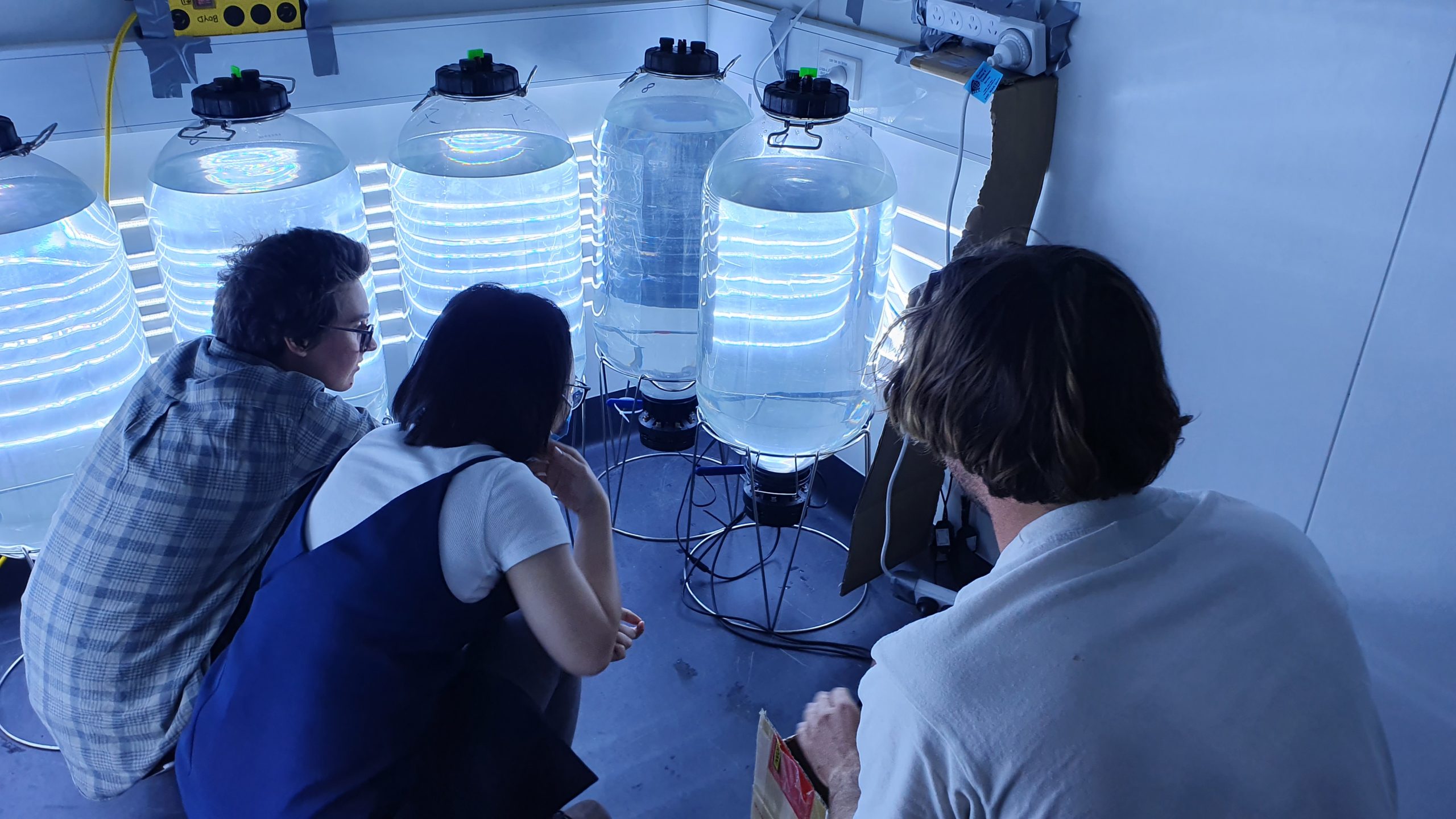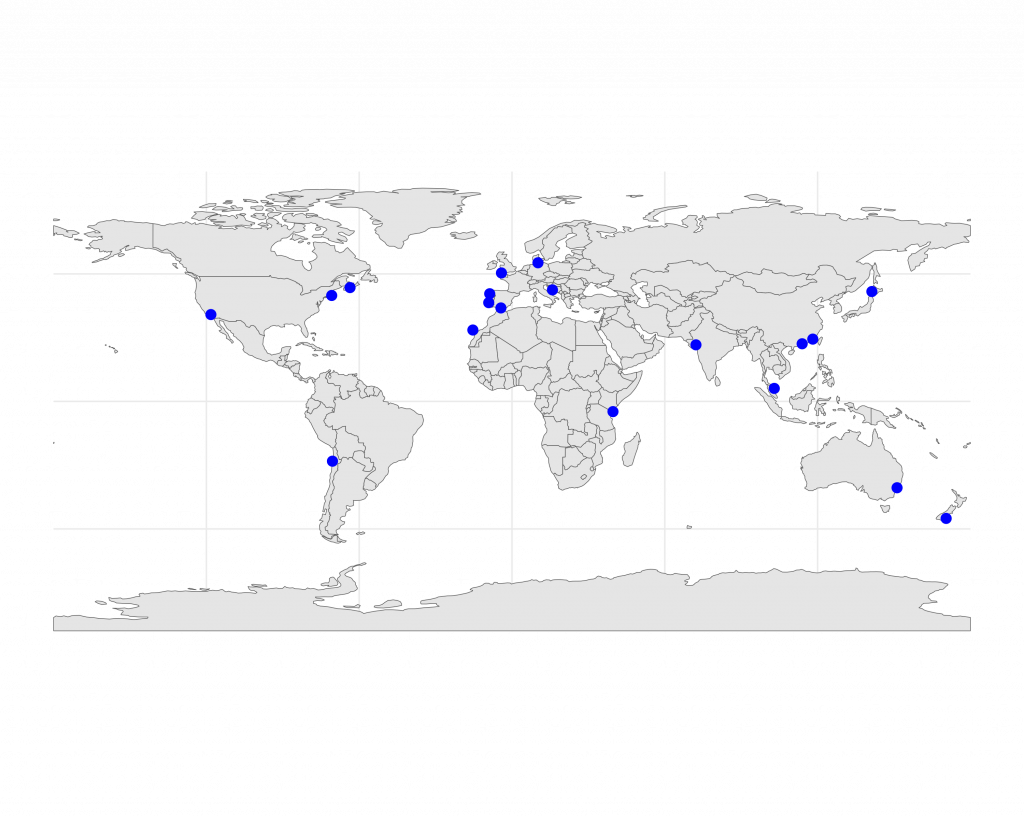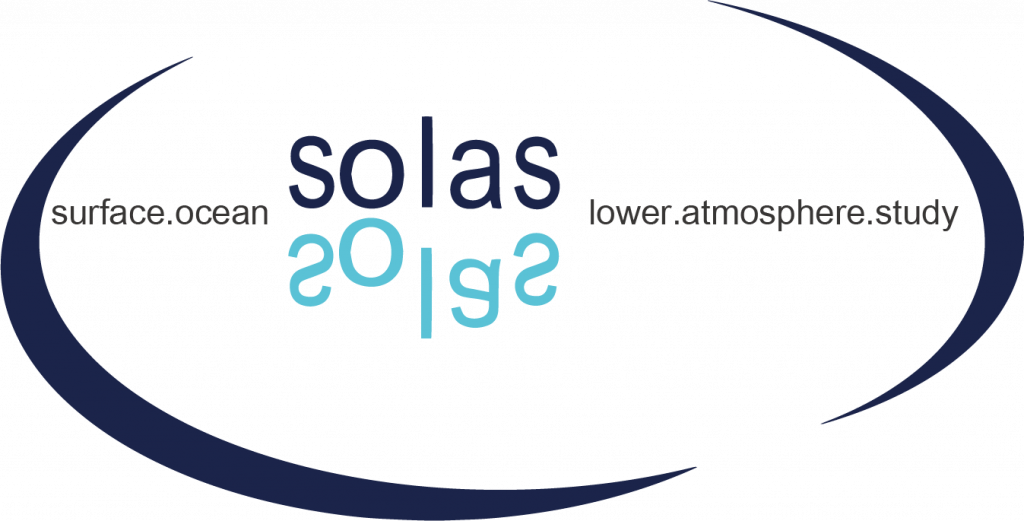Ocean Alkalinity Enhancement Pelagic Impact Intercomparison Project

Any inquiries or to submit your OAEPIIP application, please send it to OAEPIIP@utas.edu.au.
OAEPIIP Community
| Principal Investigator | Affiliation | Country (Region) | Date of experiment | Status |
| Linn Hoffman1 | University of Otago1 | New Zealand | Jun 2024 – Dec 2024 | |
| Mark Hopwood1, Xuechao Wang1 | Southern University of Science and Technology1 | China | Dec 2024 – Aug 2025 | |
| Julie LaRoche1 | Dalhousie University1 | Canada | Sept 2024 -Oct 2024 | |
| Marcos Fontela1 | Institute of Marine Research (IIM-CSIC)1 | Spain | Mar 2025 – Jun 2025 | |
| Adam Subhas1, Lukas Marx1 | Woods Hole Oceanographic Institution1 | United States | Jan 2025 – Sept 2025 | |
| Giulia Faucher1 | GEOMAR Helmholtz-Zentrum für Ozeanforschung Kiel1 | Germany | Feb 2025 – Oct 2025 | |
| Natalia Osma1,2 | Institute of Natural Science Alexander von Humboldt, University of Antofagasta (UA)1 Millennium Institute of Oceanography (IMO), University of Concepción2 | Chile | Jan 2025 – Oct 2025 | |
| Leila Kittu1, Mariam Swaleh2, Ali Shee2, Joseph Kamau3 | GEOMAR Helmholtz-Zentrum für Ozeanforschung Kiel1, University of Mombasa2, Kenya Marine Fisheries Research Institute3 | Kenya | Feb 2025 – Oct 2025 | |
| Maria Segovia1 | University of Malaga1 | Spain | Sept 2024 – June 2025 | |
| Jihua Liu1 | Research Centre for Ocean Negative Carbon Emissions, Xiamen1 | China | Oct 2024 – June 2025 | |
| Will Berelson1 | University of Southern California1 | United States | Sept 2024 – July 2025 | |
| Jelena Godrijan1 | Ruder Boskovic Institute1 | Croatia | May 2024 – October 2025 | |
| Helen Findlay1 | Plymouth Marine Laboratory1 | United Kingdom | Sept 2024 – Sept 2025 | |
| Seng Chee POH1, Roswati Md Amin1 | University Malaysia Terengganu1 | Malaysia | June 2024 – August 2025 | |
| Katherina Petrou1 | University of Technology Sydney1 | Australia | March 2025 – October 2025 | |
| Catarina Guerreiro1, Ana Amorim1 | Marine and Environmental Sciences Centre (MARE)1 | Lisbon | May 2025 – October 2025 | |
| *Koji Suzuki1 | Hokkaido University1 | Japan | May 2025 – October 2025 | |
| *Arvind Singh1 | Physical Research Laboratory1 | India | Sept 2024 – Feb 2025 | |
PLEASE NOTE
OAEPIIP applications are now closed; however, you can still hand in an application. We will put you on the waiting list and provide funding should we be able to secure extra funding for more experiments.
Please do not hesitate to submit your application.

OAEPIIP MAP DISTRIBUTION
FAQS
How to submit OAEPIIP application?
To submit your OAEPIIP application, please download the form above and send it to OAEPIIP@utas.edu.au
Which microcosm incubators shall be used for OAEPIIP experiments
- All experiments shall use the FermZilla tanks by Kegland (e.g., https://www.kegland.com.au/products/55l-fermzilla-tri-conical-pressure-brewing-kit?_pos=1&_psq=fermzilla+55&_ss=e&_v=1.0). Both Gen2 or Gen3 are suitable for OAEPIIP. In Tasmania, we used Gen2 tanks so far and these worked very well. The OAEPIIP administration (oaepiip@utas.edu.au) can help with finding the right distributor at your location.
Can I do more than one OAEPIIP experiment?
You are more than welcome to do more than one OAEPIIP experiment with the total funding available to you (i.e., ~12000 US$).
Can equipment purchased via OAEPIIP be kept after the study?
Yes, all materials can be kept by the participating group.
This project, funded by the Carbon to Sea Initiative and endorsed by SOLAS, represents a globally coordinated effort to investigate the potential effects of ocean alkalinity enhancement on diverse plankton communities.

